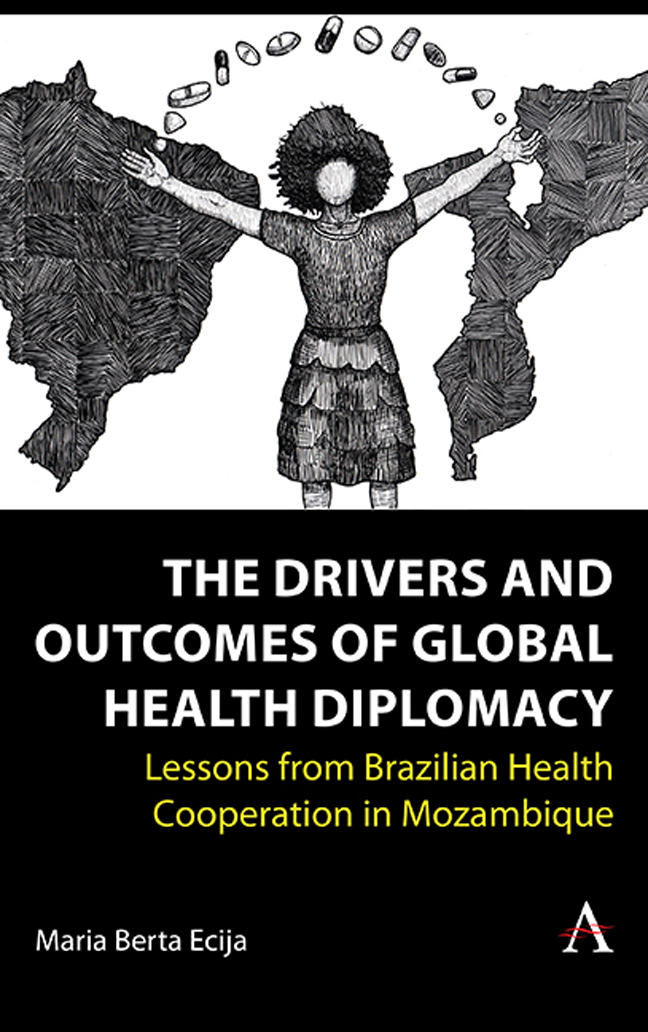 The Drivers and Outcomes of Global Health Diplomacy
The Drivers and Outcomes of Global Health Diplomacy Book contents
- Frontmatter
- Contents
- List of Abbreviations
- 1 Introduction and Methodology
- 2 Literature Review on Global Health Diplomacy – Brazil and Mozambique
- 3 Brazil and Global Health Diplomacy
- 4 Mozambique’s Foreign and Health Policy
- 5 Case Study of Sociedade Moçambicana de Medicamentos
- 6 Analysis and Outcomes
- 7 Conclusion
- Post-script: COVID-19 Disclaimer
- Bibliography
- Index
3 - Brazil and Global Health Diplomacy
Published online by Cambridge University Press: 29 February 2024
- Frontmatter
- Contents
- List of Abbreviations
- 1 Introduction and Methodology
- 2 Literature Review on Global Health Diplomacy – Brazil and Mozambique
- 3 Brazil and Global Health Diplomacy
- 4 Mozambique’s Foreign and Health Policy
- 5 Case Study of Sociedade Moçambicana de Medicamentos
- 6 Analysis and Outcomes
- 7 Conclusion
- Post-script: COVID-19 Disclaimer
- Bibliography
- Index
Summary
Introduction
This chapter contextualises the HIV/AIDS crisis in the Brazilian context, exploring domestic and international efforts to establish an ARV factory. It highlights Brazil’s role as a central player in fighting against HIV/AIDS, and the global health diplomacy involved during the epidemic, traversing the presidencies of Cardoso, Lula and Rousseff. It analyses the important policies that developed from the period of Cardoso’s reign, which dealt with the immediate impact of the epidemic; introduces the idea of South-South cooperation, which emerged under President Lula’s government, describing how this is related to soft power and the domain of health; and discusses the role of the Brazil–Africa policy under Rousseff. This paves the way for the discussion of Mozambique’s health diplomacy during the HIV/AIDS epidemic in Chapter 4.
HIV/AIDS in Brazil and the social movement for health: The domestic scenario
In the 1990s, World Bank experts conducted a speculative study about the spread of the HIV/AIDS epidemic in Brazil. Their conclusions were overly pessimistic that by the end of the decade 1.2 million people were supposed to be infected. The negative expectations were entirely justified, as Brazil had all the necessary ingredients to become a sizeable endemic area. The country is comprised of a large and very unequal population, with a less than three thousand dollars per capita per year income, combined with a health system where infectious diseases accounted for 5 per cent of the mortality rate per year. On that note, the concentration of poorer layers of society was in crowded urban areas, which would contribute to the intensification of the transmission (Serra, 2004, p. 1).
Although the Brazilian national health system had its limitations, it was not as ill-equipped as pointed out by the World Bank experts. This system had managed to eradicate several infectious diseases before, such as poliomyelitis and measles. Moreover, the system had developed some strengths in promoting prevention campaigns, through the support of public institutions and medical practises in hospitals. In terms of coverage, the national healthcare system provides services throughout the whole 8.5 million square kilometres, reaching almost 170 million people. It is estimated that at least 80 per cent of the population depends on this service (Serra, 2004, p. 1).
The system described by Serra is Sistema Único de Saúde (SUS). It was created through the Federal Constitution of 1988, which commands that the government should take responsibility for providing universal healthcare.
- Type
- Chapter
- Information
- The Drivers and Outcomes of Global Health DiplomacyLessons from Brazilian Health Cooperation in Mozambique, pp. 75 - 116Publisher: Anthem PressPrint publication year: 2023
